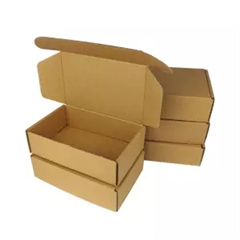There are several eco-friendly alternatives to plastic bags that can help reduce the environmental impact associated with single-use plastic bags. Here are some popular alternatives:
- Reusable Cloth Bags:
- Cloth bags, often made from materials like cotton, jute, or canvas, are durable and can be used repeatedly.
- They come in various sizes and designs, making them suitable for various purposes, from grocery shopping to carrying personal items.
- Paper Bags:
- Paper bags are biodegradable and can be recycled.
- Many retailers offer paper bags as an alternative to plastic bags, particularly for packaging goods.
- Biodegradable Plastic Bags:
- Some companies produce biodegradable plastic bags made from renewable sources like cornstarch or potato starch.
- While they break down more easily than traditional plastic bags, they still require specific conditions to decompose, such as adequate heat and moisture.
- Jute or Burlap Bags:
- Jute and burlap bags are eco-friendly options made from natural fibers.
- They are sturdy and can be used for carrying groceries, as fashion accessories, or even for gardening.
- Hemp Bags:
- Hemp bags are made from the fibers of the hemp plant and are both durable and sustainable.
- Hemp cultivation requires minimal water and pesticides.
- Woven or Mesh Produce Bags:
- These lightweight, breathable bags are designed for carrying fruits and vegetables.
- They reduce the need for disposable plastic produce bags at grocery stores.
- Tote Bags:
- Tote bags are versatile and come in various materials, including cotton, canvas, and recycled materials.
- They are often given away as promotional items and can serve as a reusable alternative to plastic bags.
- Upcycled Bags:
- Some companies create bags from upcycled or recycled materials, such as old banners, billboards, or plastic bottles.
- These bags are not only eco-friendly but also unique and stylish.
- Carton Bags:
- Carton bags are made from recycled paperboard and are designed to resemble traditional paper bags but with added durability.
- They are suitable for carrying groceries and other items.
- String Bags (Net Bags):
- String bags, also known as net bags or market bags, are lightweight and expandable.
- They are ideal for carrying produce, bread, or other small items and can be easily folded for storage.
- DIY Fabric Bags:
- You can make your own reusable bags by repurposing old clothing or fabrics.
- This DIY approach allows you to create unique and personalized bags while reducing waste.
- Metal or Bamboo Baskets:
- For a more traditional and stylish option, consider using metal or bamboo baskets for shopping or carrying items.
Remember that the most effective way to reduce the environmental impact of bags is to use them consistently and avoid single-use plastic bags whenever possible. Many retailers now encourage or require customers to bring their reusable bags, and making this small change in your daily routine can have a positive impact on the environment.








